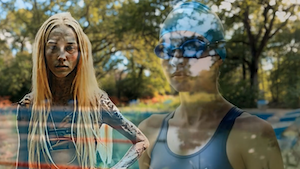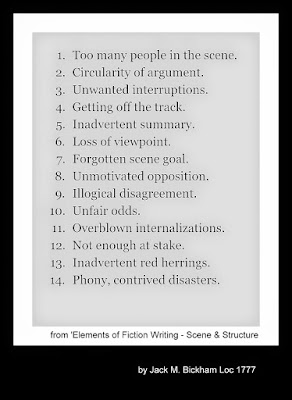1,783,027 words, 1,879 entries over 5,091 pages if printed off.
This how I left my first blog.
It barely scratches the surface of the memories a brain can recreate. I tried. I have in there repeated efforts to recall the very first things I could ever feasibly have formed as viable memories: or were they words and images put into my head by my mother much later? I also noticed that in the comments I have two years of conversations with the now published author Catherine Valente and, would that I could verify it, a short exchange with Norman Mailer.
This diary is on 'Diaryland;' started in September 1999, finally ended in March 2006. It feels like landfill: there's so much stuff in there rotting away. Though it doesn't, it's digital. Closed because while I don't give a monkey's about writing on everything I have done, thought about or think where people can be identified it does cause embarrassment and pain. It took me a few years to realise that if I was receiving 200+ views an hour some of these people might know me. No one I knew ever, ever said they were there. Not for a long time. Perhaps they knew I'd close it down if they let on? I tried to obscure names and locations but that just got very confusing. I held a mirror along the Pennines and set everything that had taken place in Northumberland in Cumbria and vice versa. For people's names I tried initials, but 'JV,' for me is a give away, so I cleverly decided to change names by one letter in the alphabet, so 'JV' would become 'KW' and I'd give him the name 'Ken,' for example. I knew a lot of Sallys and Sarahs who all become 'Tamsin' or 'Tabatha' which threw my head into immediately constructing different personas for them. Ken and Tabatha sounds like the relationship between a Barbie doll and a Sacha doll.
There were a lot of 'Js' too for both boys and girls from the 1970s and there is a limited choice of 'Ks' to go with.
Only a few years later bumping into old friends from home and school have they said they knew all about 'X', and 'Y' or looked at the drawings I did of 'K' and the photo of 'T.' The greatest shock was getting into a conversation with my 'petite amie' from my school French Exchange when I was 17 - 33 years after we'd last seen each other. I'd posted a teen sketch I did of her and wrote up in detail how we behaved.
It is of greater value to me not 'cleaned up,' so I keep it closed though once again I'm drawing upon it constantly as it contains a substantial part of a diary I kept from the age of 13 to 28 and a great deal of stories that I wrote drawing on some of those experiences. These are finding life once again thanks to the OU's FutureLearn course 'Start Writing Fiction' and, once again, a close writer/editor relationship that has formed. It is, should I ever get published, a sound example of the value of keeping a 'notebook' as that diary, even as I conceived it age 13 is/was a 'writer's journal'.
What I find touching, then and again today, is that supportive friendships form with fellow writers or readers or editors that is enormously encouraging and guiding; people want my words. I feel like a kind of stand up comic on stage who carries his audience some of the time, then gets hit from time to time by a soft 'carrot' or a bendy 'stick' and subsequently re-adjusts his 'voice' to the one they want to hear.
Marking five years since I started my OU degree and this blog almost coincided with a logical, deserving step into the legitimate world of e-learning as I completed an 'in-tray' exercise ahead of a second interview. As I prepared to mark this 'Five Years' (a totemic time period for any David Bowie fan) I thought I could be announcing this literal step onto a 'platform'. Though I also had in mind my response to it not happening:
- no more job applications
- no more OU courses
- back to writing with a renewed vengeance and determination. (I feel the Start Writing Fiction course on FutureLearn has refuelled me. I've been a petrol engine trying to run on diesel all y life and they fixed that)
- once again give a substantial body of unpublished work (manuscripts for novels, screenplays, TV series, radio plays) their chance. (I have made and found the time and was for a couple of years indulged by an agent and producers enough to get interviews to discuss treatments and first scenes. On reflection I was a chef who appeared to promise something delicious but kept serving the thing up either cold or over spiced. SWF has been like a short course in Cordon Blue cookery; I may not be there yet, but at least what I'm now producing is edible).
- and commit to a two month sailing trip later in the year: the Atlantic via the Canaries and Cape Verde to Bermuda.
- Meanwhile I have picked out one manuscript, something I dated March 2006 when I boxed it away, that runs to around 100,000 words and 42 chapters. I am revisiting, rewriting and posting this in little bits. It'll take at least six months working 14 hours+ a day.
- eight hours a week 'work' fails to keep the wolf from the door. I could do with at least 20.
On verra.
This OU Student Blog, a good deal of it already migrated into a WordPress blog, is coming to its natural conclusion. Five years is long enough. Until I study here again.
Elsewhere at:
www.mymindbursts.com
Writing fiction at:
www.startwritingfiction.wordpress.com = password protected
Diaryland at:
www.jonathan.diaryland.com = password protected








